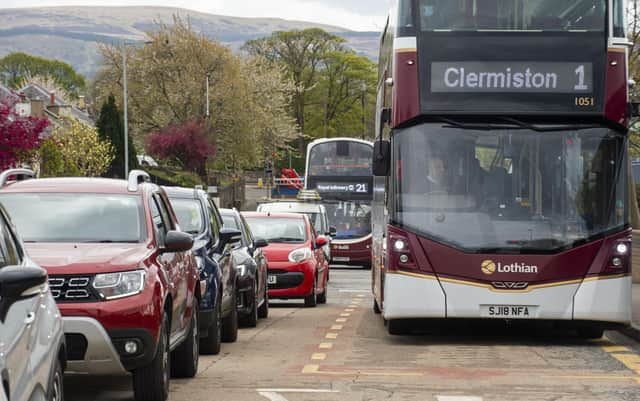When will we really start playing the long game on car use?


Many still believe that the road ahead is open and endless when it comes to car use – but we know this really can’t be the case for much longer.
There is no doubt that cars bring comfort and convenience. When public transport in some cities, such as London, is almost a door-to-door experience there is little want or need for a car but the same is far from true in all places.
Advertisement
Hide AdAdvertisement
Hide AdWhen we are running late, the car may seem like the only option. When it is cold and wet, they bring us shelter. When the kids are crying and life is in chaos, they give us a little privacy while we pursue our destinations. The bus, it may seem, offers none of these things.
But our overuse of cars in the day-to-day is something that is hard to deny. It’s a great liberator to think of jumping in the car and hitting the road for a weekend but we know that, as we head to work, quite often we are driving straight into a line of standing traffic, much of it transporting just a single soul.
Gear change, however, is inevitable as the Scottish Government works to reduce traffic by 20 per cent by 2030.
Transport minister Graeme Dey has described powers for councils to launch workplace parking licensing schemes as a “key tool” to curbing car use and Edinburgh and Glasgow are among those considering them.
Employers would pay an annual levy on every car parking space it used, which can be passed onto staff and visitors, with the money then ringfenced for public transport, cycling and walking routes.
Nottingham, the only UK city to have adopted such a scheme, has shown the scheme has benefits. There, the city charges £428 a space which has in turn raised tens of millions of pounds for tram, rail and bus improvements.
Of course, there will be rightly be exemptions, such as for those with limited mobility, and our businesses must be given every support possible to function.
But if the time is not now to seriously consider alternative modes of travel, when will it be? Should it really be just down to the next generation, our children, to leave the car keys at home?
A message from the Editor:
Thank you for reading this article. We're more reliant on your support than ever as the shift in consumer habits brought about by Coronavirus impacts our advertisers.
If you haven't already, please consider supporting our trusted, fact-checked journalism by taking out a digital subscription.
Comments
Want to join the conversation? Please or to comment on this article.